
CHAMPION, HERO, LEADER
SOPHIA FRANCO
WHILE MANY JEWS BEGAN TO LEAVE SYRIA AFTER WW I, SOME CHOSE TO STAY. IT WAS THE LIFE THEY KNEW, AND THEY WERE HAPPY. ASIDE FROM A FEW ANTI-SEMITIC ACTS, MOST FAMILIES THERE WERE THRIVING. THEY OWNED SUCCESSFUL BUSINESSES, ATTENDED JEWISH SHULS AND SCHOOLS, AND THE CHILDREN LEARNED SECULAR STUDIES IN FRENCH AND ARABIC, AND TORAH STUDIES AS WELL.
Yomtob was born in Aleppo in 1921 to Eliyahu and Zekieh Cohen, the second of nine children; seven boys and two girls. Unfortunately, his father died young from an illness, but Yomtob stepped up and took responsibility for his mother and siblings, making sure they had everything they needed.
Yomtob became a leader, not only for his family, but for the entire community. He was magnanimous, righteous, and kind. He loved people, and took great care of his friends. He was strong, well spoken, and reliable. While most Jews stayed quiet in Syria, under the radar, Yomtob was brave and unafraid to deal with the government. His belief in Hashem guided his every move.
On November 29, 1947, the historic day when the United Nations voted in favor of partitioning Palestine, everything changed. The very next day, riots became widespread in many Arab countries. In Aleppo and Damascus, anti-Jewish rebels ran through the streets with gas and torches, screaming, “Death to the Jews,” as they set many homes, businesses, shuls, and schools on fire, including a major portion of The Great Synagogue of Aleppo, which dates back to the time of David Hamelech.
The Jews went into hiding that day, fearing for their lives. Some hid by kind Christian or Armenian neighbors, and others joined family members in safer areas. To be clear, this was not the government acting against the Jews. These were rebels—armed with anger and frustration and anything they could get their hands on. Still, the police did nothing to stop them; in fact, many joined in the destruction.
Yomtob was only 26 years old at the time, but he had already made a name for himself in Aleppo. He managed business disputes, guided young men and women away from marrying out of the faith, and as a successful textiles merchant, he also lent money, as banks did not exist in Syria until much later on. When the riots calmed down, the police asked Yomtob to drive around in a police car with a bullhorn and let everyone know it was safe to come out. The very next day many Jews began to flee.
By 1948, when Israel announced their independent state, seven Arab countries had waged war against the Jews of Palestine. They attempted to wipe the new Jewish state out, but with Hashem’s help, Israel was able to defeat them. The 10,000 Jews of Syria suddenly became enemies of the state, hated by the government and the rest of the population. New restrictions on travel, importing and exporting went into effect, which made conducting business, and life, extremely difficult. More Jews were leaving the country underground, going through Turkey or Lebanon. It was scary though; those who left did so with only the clothes on their back and whatever they could carry. If they were caught attempting escape, they were imprisoned. Those who stayed, tried to rebuild, but were forced to live under the laws of the land, which were not in their favor.
In the mid-fifties a new governor gave the Jews permission to leave the country legally, on the condition they leave all their belongings, real estate and businesses behind. They also had to pay the government a large sum of money, which most people did not have. Yomtob played a big role in this.
In the USA and abroad, Sephardic communities collected donations to send to Syria. They needed a trustworthy person to handle these funds, and Yomtob was the perfect choice. He received the money, kept it safe, and used it to pay the government and get his community members out. He also helped friends and family with the approval application, which was a long and difficult process. Yomtob was sort of a liaison between the government and the community. His friends came to him with their issues, and he was not afraid to help, no matter the consequences.
Mr. Joseph Assa, who was in Syria at the time, tells this story vividly, “When Yomtob would come to Damascus he would visit my father, Rabbi Zaki Assa A”H, to get a beracha. My father was concerned about a family with nine young girls who were working in Muslim factories. Their father did not want to go to Israel, as he was accustomed to life the way it was, but the rabbi worried that the girls were in a dangerous predicament and could be easy targets for intermarriage. He asked Yomtob if he could help them get safely to Israel. Yomtob started the paperwork without the father knowing, and finally got them to Turkey, and then Israel. Today, these girls have children and grandchildren in Israel, thanks to Yomtob’s bravery.”
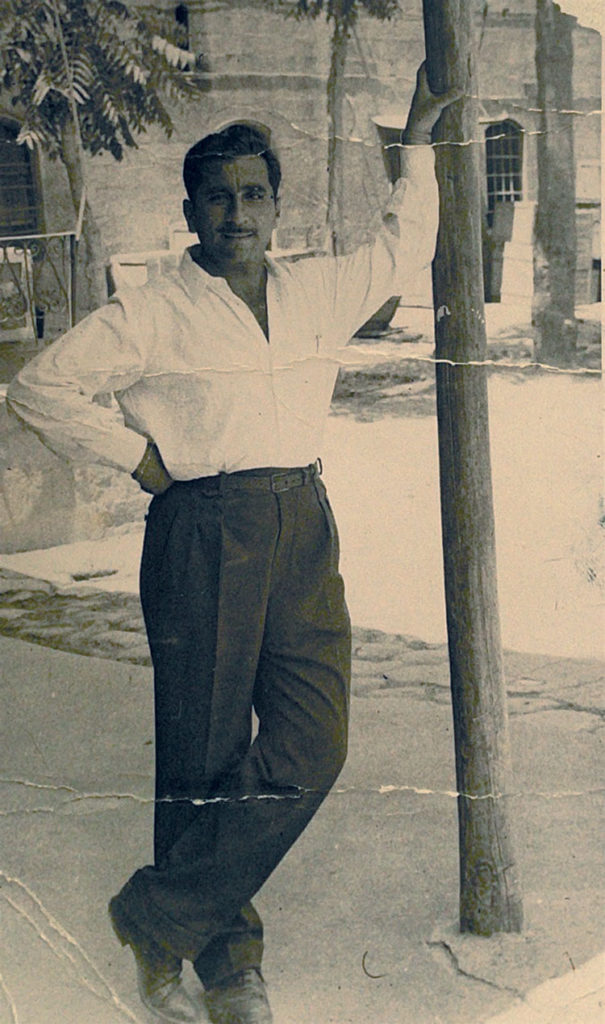
This legal exit for the Jews was short lived, but Yomtob continued secretly helping his people flee the country illegally. He was detained at one point, and when the investigator reported him to his superior, he bragged that they caught the “ring leader.” They suspected that Yomtob was involved in helping over 350 families escape to the “enemy” country of Israel. He and a few other Jewish men were jailed for 40 days, where they were beaten and tortured, but the extent of their involvement was never determined. It was a miracle they came out alive.
In 1956, Yomtob married Rosette Salman, daughter of Margalit and Haskel Salman. She was young, beautiful and educated, from a respected family in Iraq. After a grand ceremony in the shul, they returned to their home where they danced and enjoyed a festive celebration. For the first two years they lived with his family, as was customary, and started a family of their own. They had a daughter first, Ketty, and then Elie, Haskel and Margo.
Yomtob was strong and fearless, and he lifted weights to maintain that strength. In 1955, when the highly respected Rabbi Mose Mizrahi A”H passed away, he organized the funeral and made sure the school kids all attended and paid their respects properly. In 1960 when the community school ran out of space and needed to expand, Yomtob was among the first group to donate money for that purpose. His name was on a plaque there, among many other philanthropists of the community.
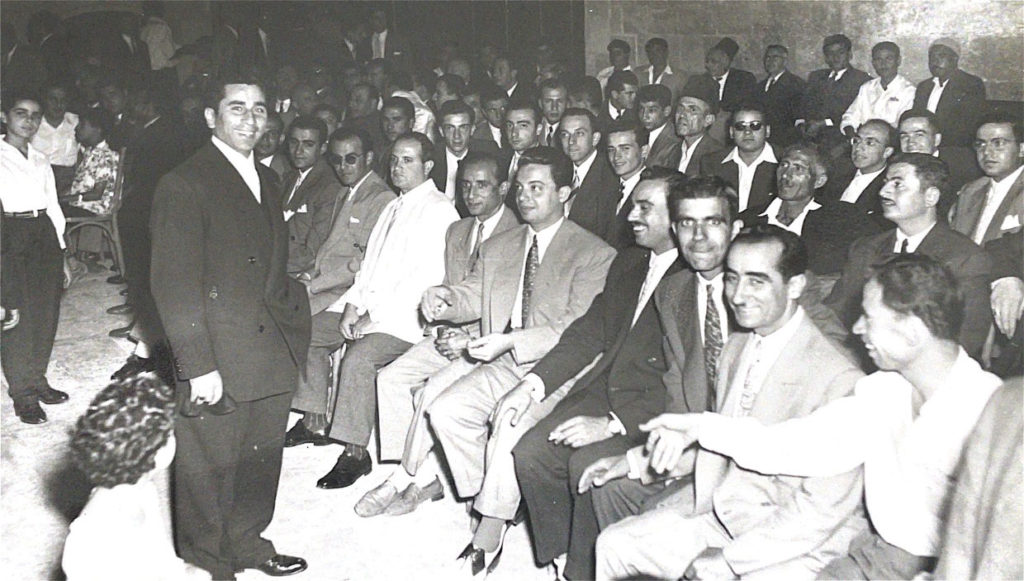
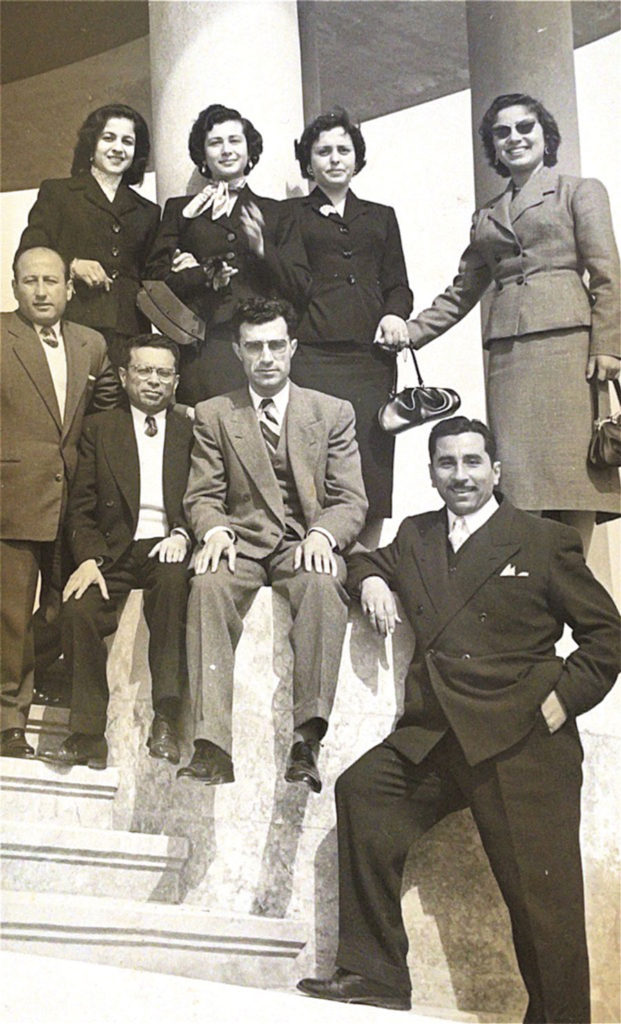
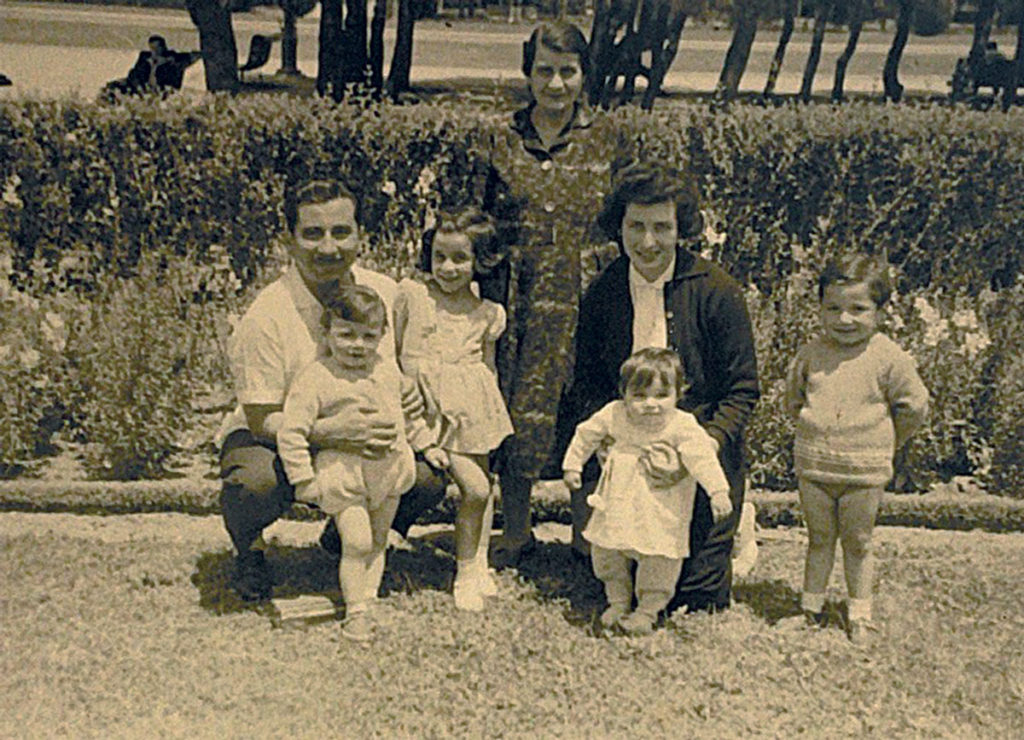
In another story, Yomtob saw a girl being attacked and raped by some Muslim men. While trying to save her, he was stabbed near the heart. He helped her escape to Israel as soon as he could. He also found a group of girls who had been kidnapped and arranged for their escape as well.
In yet another story, Zekieh Bawabeh applied for a special permit to leave the country, but became pregnant and had a baby daughter before the papers came through. When she attempted to cross the border, they told her she had to leave the baby in Syria because she did not have the proper papers for her. Her mom, Mrs. Sammouch A”H, asked Yomtob for help. Yomtob went to Bab Al-hawa, the Syrian border of Turkey, with Mr. Salim Farhi A”H, to bribe the guard and get them both to the other side safely. He was very sensitive, and always strived to help every person he could.
In 1962, there was still much chaos and many restrictions for Jews in Syria. While a young Murad Guindi was curiously watching a fleet of tanks gather in the square—a place he was forbidden to be—he was called to the police station for investigation. It was two days before his wedding, and his mom, Mrs. Lattouf Guindi A”H, went to Yomtob’s home begging him for help. Yomtob was known to be a good talker. He went with Murad to the police and said to them, “You called Murad here? Good! Because he wants to invite you to his wedding!” The police were not fooled. “Why were you in the square?” They asked Murad—you are forbidden!” With Yomtob by his side, they let Murad go, and he was married a couple of days later.
These stories are just a few of many. Times were very hard in Syria, but Yomtob and a few others stood their ground to try and help. They dreamed of a better life for their families in Israel or America, but he did not have a chance to see it.
Yomtob was partners with his brother in a fabric store, but often was out doing business in nearby villages or around the town. On October 31, 1963, he got into a taxi with three other people to travel to another village. The trip should have taken one hour, but tragically, Yomtob Cohen A”H, did not come home that day.
The family was informed that the car had flipped over, and when Yomtob tried to crawl out, he hit his head. The other passengers were unharmed. They were devastated, as you can imagine. Later on, Yomtob’s brother Ezra found almost $36,000 in his possession. While Ezra was not involved in these affairs, he knew this money belonged to the community and returned it to a committee member as his brother would have wanted, to continue the work of getting as many people out as possible. There is speculation about this accident, but nothing was ever proven. Was the Syrian government trying to get rid of him? Were they afraid of him, angry with him, or was it just an accident, as it seemed to be? We will never know. Yomtob was 42 years old.
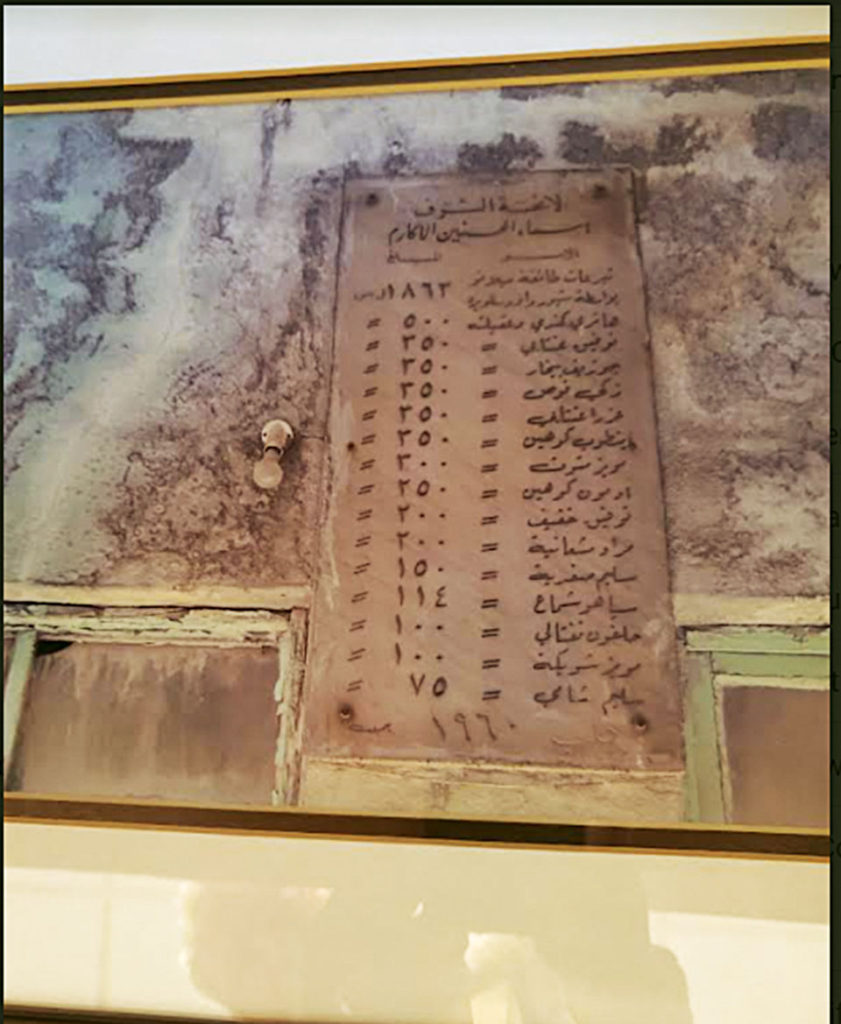

(standing l-r,) Elie, Joe (Haskel) and Toby Cohen,
(sitting l-r,) Margo, Rosette and Ketty

His wife, Rosette was pregnant at the time, and when she gave birth to their son, she named him Toby, after his father whom he would never meet. Despite the hurt and pain of losing her husband, Rosette looked at her kids with hope for the future. She worried about every detail of their lives, including their education, food, clothing, vacations, and the friends they chose. She didn’t want them to feel that they were missing anything. Yomtob’s mother, Teta Zekieh, stayed with his wife and children, taking on a strong role in their upbringing. The children remember her as an eshet hayil, who prayed and gave them blessings at every opportunity, saying that everything they touched should turn to gold. She was known to never speak a word of lashon hara, no matter how hard she was coaxed. She taught the children to continue on, because life continues on.
One by one, the family made their way to America during the 1980s. When they arrived, they were without homes or jobs, they didn’t speak the language and didn’t understand the culture, but they followed in their father’s footsteps, holding onto their mesoret (traditions). They had good work ethics and they had each other. The brothers recall, “It was hard work but it was easy because we had a goal to succeed for our children.” They encourage their children to be patient, as nothing good comes easy. “Be proud of your family and community, and be honest—that will give you strength to be successful and build a good business. If you have money you must help people, and if not with money, then with time and advice. Our mother worked very hard, and because of her, we had everything. She is the rock of the family, still, and constantly reminds us that family is everything. Raising us without a father was difficult, but we never missed a thing. We are so appreciative and grateful, and from her experience, we can learn what life is about. Nothing was easy; we had to roll up our sleeves and get it done, but it did get done, so don’t panic, everything will be okay.”
Like their father, the Cohen family learned to rely on themselves. They were so proud of their father’s accomplishments, and gloried in the knowledge that every time someone spoke of Yomtob, they would say he was a great man who was fully respected and well-loved by the entire community. Mr. Assa continued, “When Rabbi Yakov Beracha came to Brooklyn from Israel to collect money for a yeshivah, I went with him to Elie Cohen. On my way there I remembered Elie’s father, and what he did for the community. I told the rabbi, ‘we need to name the school after this great man.’ That rabbi made a speech in a ceremony celebrating the grand opening of the Yeshivah. He spoke about Yomtob and all the people he helped get to Israel. “In this merit,” he said, “the name of the yeshivah will be Shaare Yomtob.” That is how the Shaare Yomtob Yeshivah started in Israel, in his memory. There are now more than 300 students there learning in the zechut (merit) of Yomtob Cohen.”
His children recall, “He was there for everybody. We constantly hear people saying, ‘I knew your father! He helped my family escape!’” His legacy lives on in his children, grandchildren, and great grandchildren, as they continue to grow, as proud members of this community, keeping their traditions strong, and helping in every way they can.
Sophia Franco has been feeding her love of reading and writing for as long as she can remember through poetry, community journalism, and songwriting.



